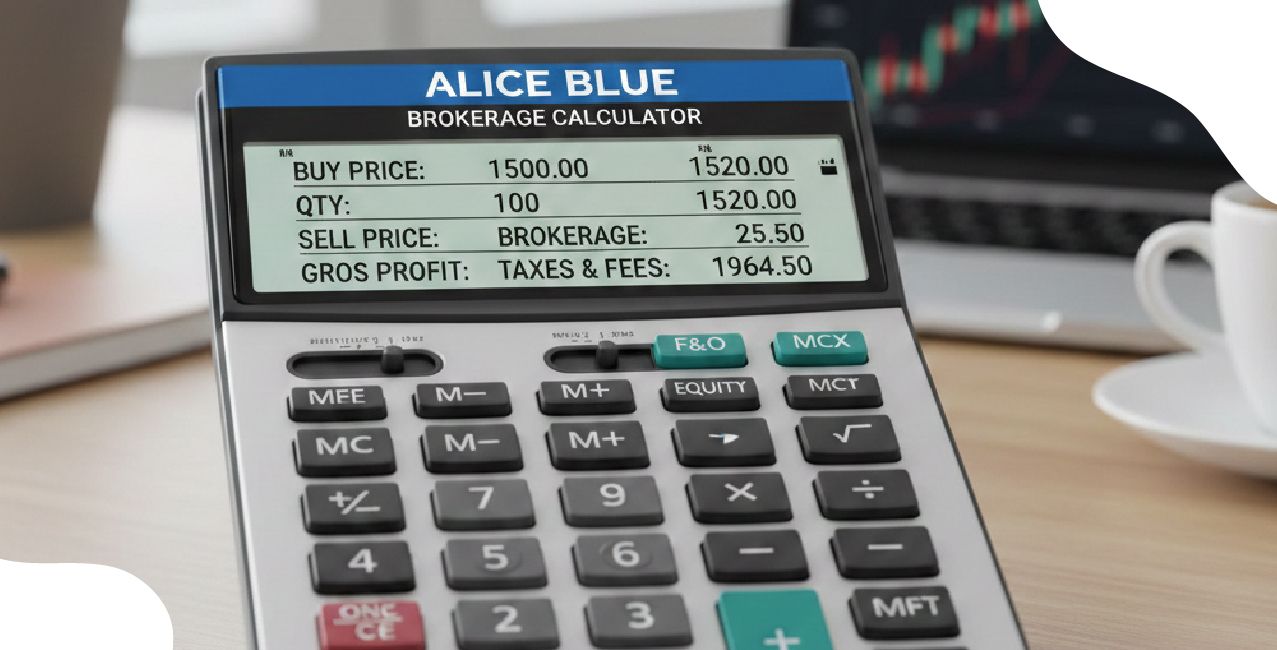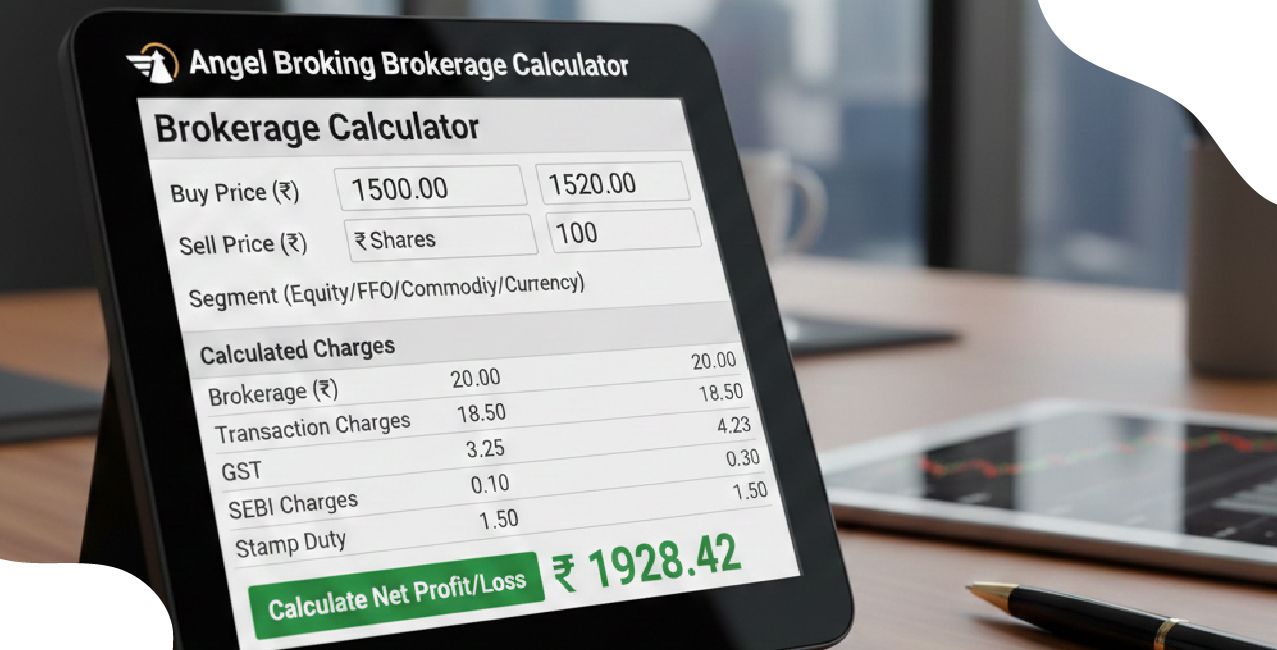How to Buy Shares – Beginner’s Step-by-Step Guide

Check Your Loan Eligibility Now
By continuing, you agree to LoansJagat's Credit Report Terms of Use, Terms and Conditions, Privacy Policy, and authorize contact via Call, SMS, Email, or WhatsApp
Rajiv Menon, a 32-year-old marketing executive from Pune, recently received a bonus of ₹1,50,000. After reserving ₹50,000 for savings and ₹30,000 for emergencies, he decided to invest the remaining ₹70,000 in shares.
With no prior experience, Rajiv did his research, opened a Demat and trading account, and made his first investment,10 shares of Infosys at ₹1,450 each and 5 shares of TCS at ₹3,600 each. Within three months, his portfolio had grown to ₹78,500.
This story is not just about numbers, it’s about building wealth over time.
Why do People Invest in Shares?
- Shares, also known as stocks or equities, represent ownership in a company.
- You own a small part of that company when you buy a share.
- If the company performs well, the value of your shares can increase.
Benefits of Share Investing
- Capital Appreciation: The value of shares can rise over time.
- Dividend Income: Some companies pay a part of their profit to shareholders.
- Wealth Creation: Historically, equity has outperformed many other asset classes in the long run.
Investing in the stock market is not about quick profits. It's about long-term vision, smart planning, and disciplined execution.
What Are Shares and How Do They Work?
At the core, shares are units of ownership in a company. Companies issue shares to raise capital, and investors buy those shares to become part-owners.
Read More – Benefits of Investing in Preference Shares Explained
Numerical Example
Suppose you purchase 100 shares of a company at ₹200 each:
- Investment = ₹200 × 100 = ₹20,000
- If the share price increases to ₹250,
- New Value = ₹250 × 100 = ₹25,000
- Profit = ₹5,000
Example of Share Ownership & Return
Shares Bought | Purchase Price | Total Investment | New Price | Current Value | Gain/Loss |
100 | ₹200 | ₹20,000 | ₹250 | ₹25,000 | ₹5,000 |
This example shows how the stock market can help you grow your wealth, but remember: prices can also go down.
Pre-requisites for Buying Shares in India
Before you start investing, make sure you have the following in place:
a. PAN Card
A Permanent Account Number (PAN) issued by the Income Tax Department is mandatory. It links your financial transactions and is needed for KYC verification.
b. Bank Account
To transfer and receive funds, you need an active savings account. Ensure it’s linked to your trading and demat accounts.
c. Demat Account
A Demat Account holds your shares electronically. You can open one through a depository participant (DP) such as:
- CDSL: https://www.cdslindia.com
- NSDL: https://nsdl.co.in
d. Trading Account
This is used to buy and sell shares. You can open a trading account through brokers like:
- Zerodha: https://zerodha.com
- Groww: https://groww.in
Numerical Example
Amit, a 28-year-old engineer, decided to start investing. He applied for a Demat and trading account via Zerodha. After uploading his PAN, Aadhaar, and a cancelled cheque, his account was approved in 48 hours. He deposited ₹25,000 and bought shares of Maruti Suzuki and Infosys. His investment journey had officially begun.
How to Choose a Stockbroker in India?
A stockbroker acts as a middleman between you and the stock exchange. There are two main types:
Read More: How to Open a Demat Account
- Full-service brokers: Offer advisory, research, and customer support.
- Discount brokers: Provide low-cost trading platforms with minimal services.
Always ensure your broker is SEBI registered. You can check this on the SEBI official website.
Comparison of Popular Stockbrokers:
Broker | Type | Account Opening Fee | Annual Charges | Trading Platform | Best For |
Zerodha | Discount | ₹200 | ₹300/year | Kite | Beginners |
Groww | Discount | ₹0 | ₹0 | App/Web | New Investors |
ICICI Direct | Full-service | ₹0–₹999 | ₹500/year | Website + App | Research Tools |
Upstox | Discount | ₹0 | ₹0 | App/Web | Fast Execution |
Numerical Example
Sweta from Nagpur compared Zerodha, Groww, and ICICI Direct. Since she was just starting and didn’t want to pay fees, she chose Groww. Using its app, she bought HDFC Bank shares for ₹10,000. She liked the ease of use and zero charges.
Step-by-Step Process to Buy Shares in India
Buying shares in India has become quick and digital, but understanding each step will help you make smart decisions. Here's a detailed guide:
Step 1: Choose a SEBI-registered broker
To start investing, you need a stockbroker registered with SEBI (Securities and Exchange Board of India). This broker provides you with a platform to buy and sell shares. There are two types of brokers:
- Full-service brokers like ICICI Direct, and HDFC Securities (they offer research, advice, and portfolio management)
- Discount brokers like Zerodha, Groww, and Upstox (cost-effective with lower brokerage fees)
Step 2: Open a Demat and Trading Account
You need two accounts:
- Demat Account: Stores your shares in digital format (like a bank stores money).
Trading Account: Allows you to buy and sell those shares on the stock exchange.
Most brokers help you open both accounts together through a simple online process with Aadhaar and PAN verification.
Step 3: Link Your Bank Account
Your broker will link your savings bank account with your trading account so you can add or withdraw funds easily. This ensures smooth transactions between your bank and the trading platform.
Step 4: Add Funds to Your Trading Account
Before buying shares, you need to transfer money from your bank to your trading account. This can be done via UPI, NEFT, or net banking—usually instantly.
Step 5: Select the Shares You Want to Buy
Do your research (explained in the next section), and once you’re confident about a company, search for its stock on your broker’s platform. For example: TCS, Infosys, HDFC Bank, etc.
Step 6: Place a Buy Order
You have two main options:
- Market Order: Buy at the current market price.
- Limit Order: Let you set the price you want to pay.
You can also place advanced orders like GTT or stop-loss, depending on your strategy.
Step 7: Shares Get Credited to Your Demat Account (T+2 Days)
Once your order is executed, the stock exchange confirms your trade. The shares are then credited to your Demat account within T+2 days (Trade Day + 2 working days).
Numerical Example
Aditya decided to invest in Maruti Suzuki. He placed a market order for 20 shares at ₹9,600 each, making his total investment ₹1,92,000. The order was executed instantly. Two working days later, the shares were visible in his Demat account, ready to hold or sell.
How to Research Before Buying Shares?
Investing without research is like shopping blindfolded. Here's how you can do smart research:
Learn More: How to Analyze Stocks
1. Fundamental Analysis
This is the backbone of long-term investing. It helps you judge a company’s actual business health, based on:
- Revenue and profit growth
- Earnings Per Share (EPS)
- Price-to-Earnings (P/E) Ratio
- Return on Equity (ROE)
- Debt-to-Equity Ratio
Also, study the management team, product demand, market share, and the company’s vision.
2. Technical Analysis
If you’re a short-term trader or want to time your entries better, use technical analysis. This involves reading charts and studying:
- Price trends
- Support and resistance levels
- Volume movements
- Indicators like RSI, MACD, and Bollinger Bands
3. Use Reliable Sources
Always rely on authentic financial portals and stock exchange data:
- NSE (National Stock Exchange)
- BSE (Bombay Stock Exchange)
- Moneycontrol
- Screener.in for free company analysis
Also Read - How Do Equity Shares Differ From Debentures?
Key Metrics to Check Before Buying a Share
Metric | Description | Ideal Range |
P/E Ratio | Price-to-Earnings ratio; shows valuation | 15–25 (sector-based) |
EPS | Earnings Per Share: profit per share | Higher is better |
ROE | Return on Equity shows profitability | 15%+ |
Debt-to-Equity | Indicates debt burden | Less than 1 |
52-week High/Low | Highest and lowest prices in the past year | Use to analyse trends |
Numerical Example
Priya had ₹50,000 to invest and shortlisted two stocks.
- Company A: P/E of 18, ROE of 19%
- Company B: P/E of 45, ROE of 8%
Despite Company B being more popular, Priya chose Company A because it had better fundamentals, indicating stronger long-term potential.
Different Ways to Place Orders While Buying Shares
Different order types give you flexibility and control. Let’s understand how:
Market Order
- You buy shares at the current price available in the market.
- Execution is instant, but you may pay slightly more due to price fluctuations.
- Best when the price is not highly volatile.
Limit Order
- You specify the price at which you want to buy.
- The order is executed only if the stock hits your desired price.
- Ideal when you’re targeting a specific buy level.
Stop Loss Order
- This is mostly used when selling, but buyers can use it to enter at breakout points.
- It limits your loss by triggering an order if the stock hits a particular price.
GTT (Good Till Triggered) Order
- Unique features by brokers like Zerodha.
- You set a trigger price, and once it’s reached, your buy/sell order is activated.
- Valid for up to a year—great for passive investors.
Numerical Example
Karthik wanted to buy Reliance shares trading at ₹2,650. Instead of placing a market order, he set a limit order at ₹2,600. By afternoon, the stock dipped, his order got executed, and he saved ₹50 per share.
Costs Involved in Buying Shares
Even though many platforms offer zero or low brokerage, there are still multiple charges to account for.
Explore More: How to Select Stocks for Intraday
1. Brokerage Charges
This is the fee charged by your broker for every trade.
- Discount brokers usually charge a flat fee (₹20 per trade).
- Full-service brokers may charge a percentage of your trade value (e.g., 0.3%).
2. Securities Transaction Tax (STT)
- This is levied by the government on buying/selling stocks on exchanges.
- Current rate: 0.1% on buy-side for delivery trades.’
3. GST and Exchange Charges
- GST (18%) is applied to the brokerage amount.
- Small exchange fees (like transaction charges, and SEBI turnover fees) are also included.
4. Stamp Duty
- A small percentage is charged by your state government on the transaction value.
- Usually around ₹10 for trades worth ₹1,00,000 (may vary by state).
Numerical Example
Swati placed a trade of ₹1,00,000. Here's the breakup:
Charge Type | Amount |
Brokerage | ₹20 (Zerodha flat) |
STT (0.1%) | ₹100 |
GST (18% on ₹20) | ₹3.60 |
Stamp Duty | ₹10 |
Total Charges | ₹133.60 |
That means her effective investment became ₹1,00,133.60, so she needs to consider this cost while calculating returns.
Conclusion
Buying shares in India has never been easier, thanks to digital platforms, mobile apps, and online KYC. From opening a Demat account to making your first trade, the process is now transparent, simple, and fast.
Whether you're like Rajiv, starting with ₹70,000 or just testing the waters with ₹1,000, share investing is a powerful tool for building wealth if done correctly.
Take the first step today. Open a Demat account, research your favourite stocks, and become part of India’s growth story.
FAQs
Q1. Can I buy shares without a PAN card?
No, PAN is mandatory for investing in shares.
Q2. How much money do I need to start investing?
You can start with as little as ₹100.
Q3. Is there any risk in buying shares?
Yes, shares are subject to market risk. Always do your research and invest wisely.
Q4. Are there any hidden charges?
Yes, brokers may charge brokerage, SEBI fees, GST, and stamp duty. Check with your broker.
Q5. Can I sell shares anytime?
Yes, during market hours (9:15 am to 3:30 pm on weekdays).
Other How to Pages | ||
About the author

LoansJagat Team
Contributor‘Simplify Finance for Everyone.’ This is the common goal of our team, as we try to explain any topic with relatable examples. From personal to business finance, managing EMIs to becoming debt-free, we do extensive research on each and every parameter, so you don’t have to. Scroll up and have a look at what 15+ years of experience in the BFSI sector looks like.
Subscribe Now
Related Blog Post
Recent Blogs
All Topics
Contents
Quick Apply Loan
Consolidate your debts into one easy EMI.
Takes less than 2 minutes. No paperwork.
10 Lakhs+
Trusted Customers
2000 Cr+
Loans Disbursed
4.7/5
Google Reviews
20+
Banks & NBFCs Offers
Other services mentioned in this article








